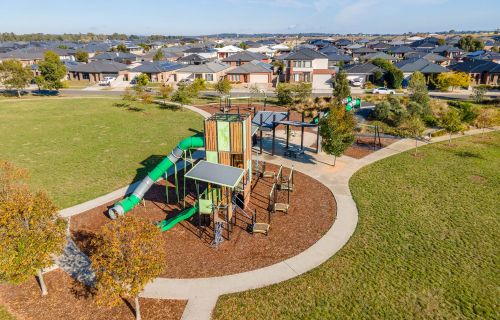Community Infrastructure Levy (CIL)

What is the Community Infrastructure Levy?
The Community Infrastructure Levy is a contribution that goes towards the construction of community facilities such as kindergartens, libraries, community hubs, maternal and child health rooms and, sport pavilions.
This levy is a one-off payment. It must be paid before a building permit for construction of a new dwelling is issued, as specified in the Victorian Planning and Environment Act 1987 and mandated under Section 24(5) of the Building Act 1993.
Do I need to pay the levy?
The levy is payable on all new homes built in the Ballarat west growth area.
How much is the levy?
The Community Infrastructure Levy is $1,450 effective from 1 July 2024.
Will the levy increase?
From 1 July 2020 and each following financial year, the community infrastructure levy will be adjusted to the new maximum levy amount published on the Department of Environment, Land, Water and Planning’s website on or before 1 July of each financial year. The amount is adjusted in accordance with section 46LA of the Planning and Environment Act 1987. The updated rate will be published in the City of Ballarat Notice Board advertisement in the The Ballarat Times and on our website.
When does the levy need to be paid?
The Community Infrastructure Levy must be paid before a building permit can be issued for a new home. Developers can elect to pay the Community Infrastructure Levy upfront to remove this need on the individual landowners. We encourage this approach.
How do I pay the levy?
A schedule of fees will be posted to the home owner when the City of Ballarat receives a section 80 notification that a private building surveyor has been appointed.
You can request a schedule of fees by emailing the Growth Areas Facilitation team on growthareas@ballarat.vic.gov.au.
On receiving a schedule of fees, payment can be made:
Contact the Sustainable Growth Team
For any questions about the Ballarat Growth Areas:
- Email: growthareas@ballarat.vic.gov.au
- Phone: City of Ballarat Customer Service on 5320 5500 and ask for the Sustainable Growth Team